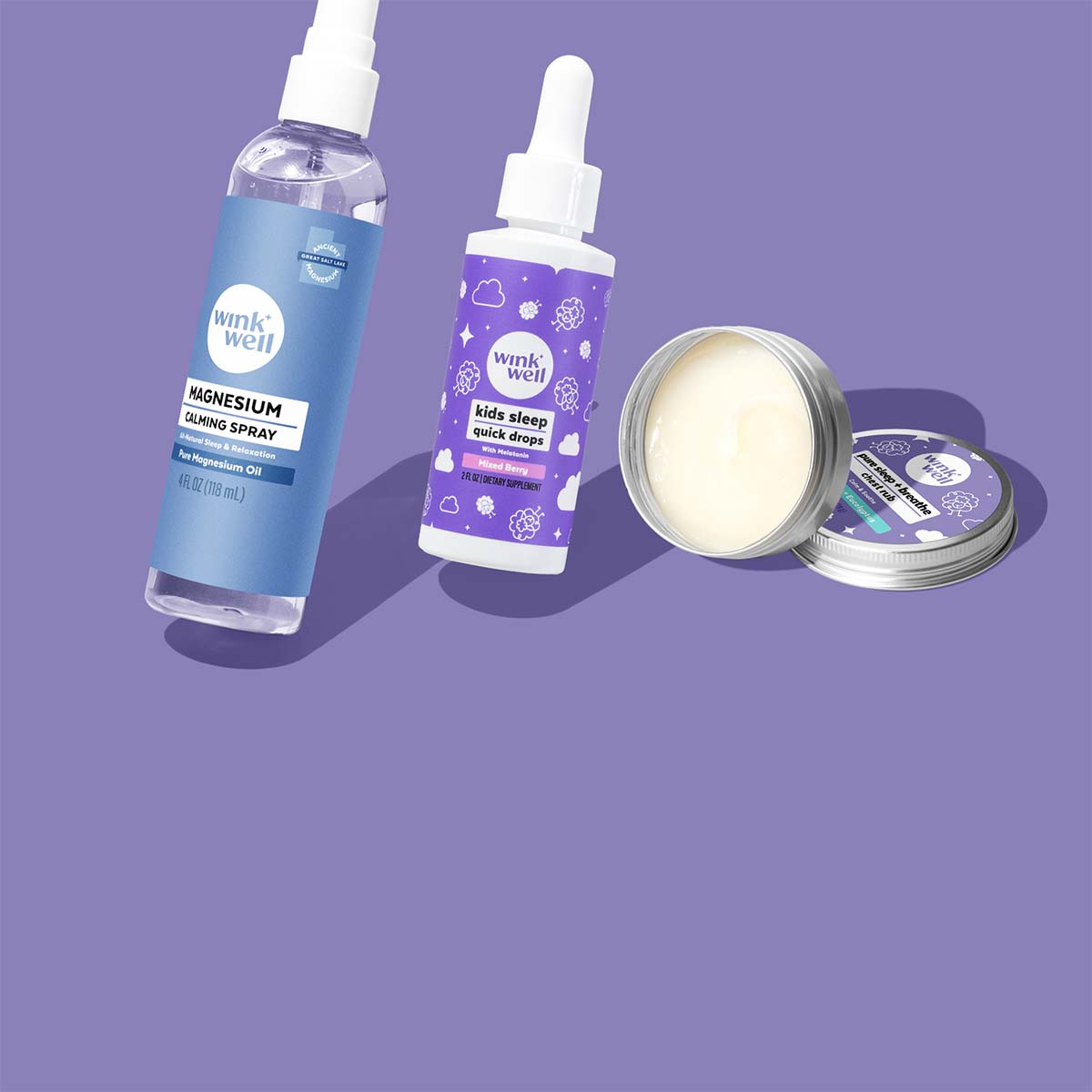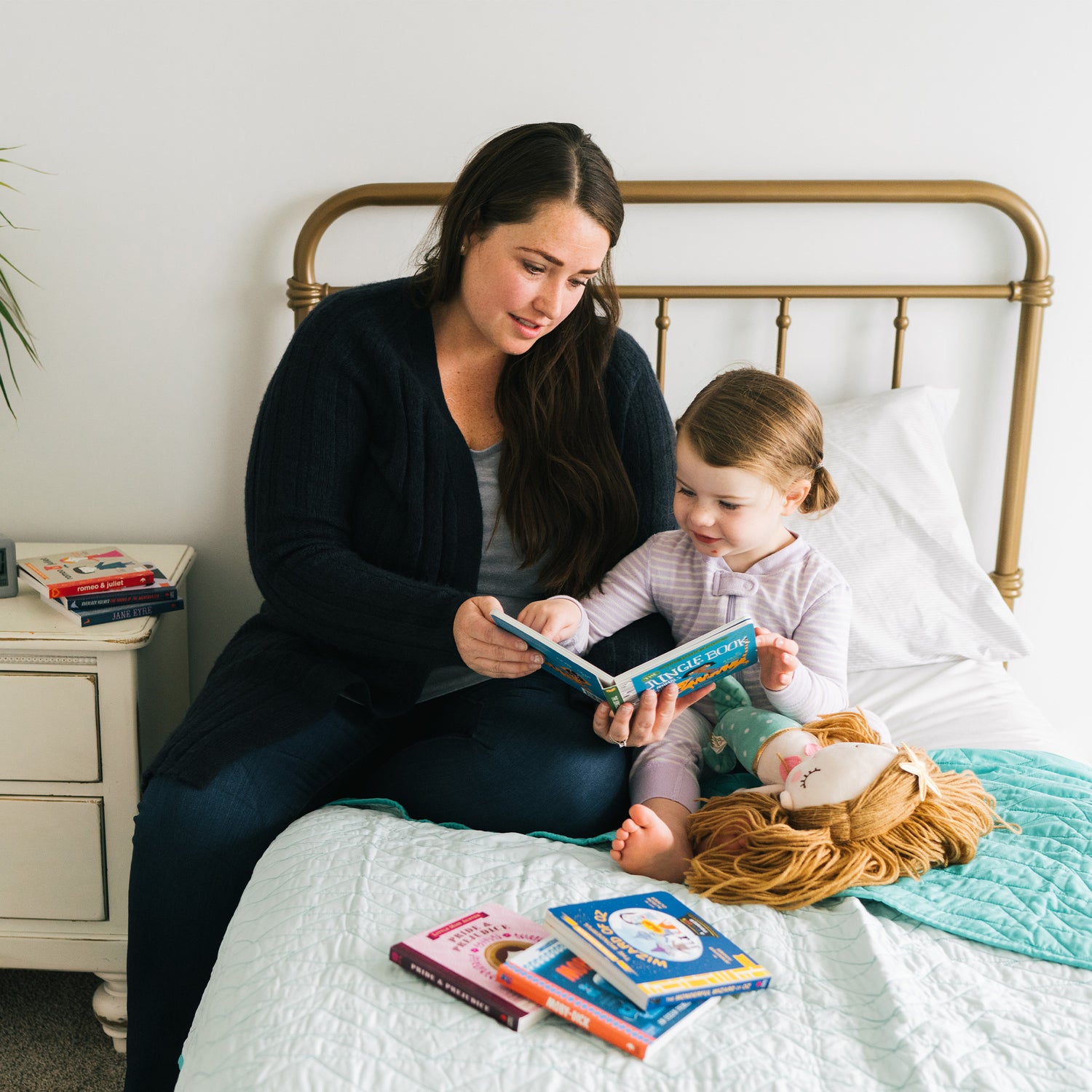You will spend about one-third of your life either sleeping or trying to get to sleep. And if you have kids, you can count on losing some sleep over them. But they are totally worth it, right?!
One way to help everyone in the family get the rest they need, is setting (and sticking to) bedtimes AS WELL AS wake up times.
But there’s more to it…
What’s a Circadian Rhythm? And Why Is It Important for Sleep?
You see, sleep is regulated by an internal clock known as our circadian rhythms. Just like any old day, our circadian rhythms are 24-hour cycles that do some important work in the background.
Let’s focus on one of the more popular circadian rhythms, the sleep-wake cycle. Our sleep-wake cycle is directly influenced by environmental cues (like day and night).
When all is well with the sleep-wake cycle, you can count on consistent and restorative sleep. When it’s off, you can count on sleep problems, which can impact physical and mental health.
Once you understand that concept, you can start with setting a bedtime and a wake up time.
What time should my child go to bed?
And how you answer that question is by knowing the answer to:
What time does my child need to wake up?

If you know that you need to leave the house by 7:30 AM to get your 5 year old to daycare, then you can plan on a 6:30 AM wake up time, which gives you a 7:15 PM bedtime.
This chart is based off recommendations by the American Academy of Pediatrics & CDC:
- 0-3 months need 14-17 hours (including 3-5 naps)
- 4-12 months need 12-16 hours (including 2-3 naps)
- 1-2 years need 11-14 hours (including 1-2 naps)
- 3-5 years need 10-13 hours (including 0-1 naps)
- 6-12 years need 9-12 hours
You know your child best. Adjust if you know that your child requires more sleep or is fine with less.
Setting a bedtime routine and a wakeup routine are worthless if you have terrible sleep hygiene!
What’s Sleep Hygiene? And Why Is It Important?
A quick breakdown of a healthy sleep hygiene includes the following:
💤 A relaxing bedroom environment (cool, cozy, dark, free from distractions)
💤 Daily routines that promote consistent, uninterrupted sleep (more on that below)
💤 A stable sleep schedule (wake up and go to bed at the same time daily)
💤 A relaxing bedtime routine (starting with dimming the lights 30 mins prior to bedtime)
For your child (and you) to get the best sleep at night, it starts with your choices during the day.
Make sure to get daylight exposure (play outside), be physically active (get those little legs running around), and for parents cut out smoking, reduce alcohol, and chill on the caffeine (especially in the afternoon and evening).
Also, make sure not to eat dinner too late and reduce in-bed activity. For littles, that might mean taking toys and distractions out of the room. And for parents, that might mean turning off the phone and tablet before crawling into bed.
What About My Older Kids and School Nights?
Once you hit the 12-18 years of age, you’ll also be getting into curfew discussions or (er) arguments.
From ages 12-18 years, your child still needs around 8-9 hours of sleep (and maybe even more depending on how active they are).
How late is too late for your high schooler to stay up? The rules don’t change. They still need their sleep in order to function at their best.
Don’t believe me? Then let’s revert to the experts! The American Academy of Pediatrics suggests these guidelines:
- A curfew of 7-8 PM for children ages 12-13 on school nights
- A curfew of 8-9 PM for children ages 14-16 on school nights
- A curfew of 10-11 PM for children ages 17-21 on school/work nights
- A curfew two hours later than above on the weekends
These are blanket recommendations. What’s most important is knowing when your child needs to wake up (early morning practices, classes, work, etc.) and how much sleep they (individually) need to be at their best.
This is easier said than done, especially since not all parents have the same rules on curfews. Whatever you decide, make the rules known, stick to them, and have reasonable, already determined, and known consequences for missed curfews! Your house, your rules!!
Helping Everyone Sleep Better
Like most things in life, a little pre-planning and discipline can make or break your sleep habits.
From how you act during the day, to how you wind down at night. You can be sabotaging your sleep.
For those days where your circadian rhythm is off or when you just need a little help winding down, we’ve got something to help you melt into sleep.
Our sleep products help you fall asleep fast and wake feeling refreshed and well-rested.* We even have options for kids.
From Kids Sleep Melts to Adult Sleep Melts, you can find something for anyone in your family to add to their nighttime routine.
Night night!
*These statements have not been evaluated by the Food and Drug Administration. This product is not intended to diagnose, treat, cure, or prevent any disease.







Leave a comment
All comments are moderated before being published.
This site is protected by hCaptcha and the hCaptcha Privacy Policy and Terms of Service apply.